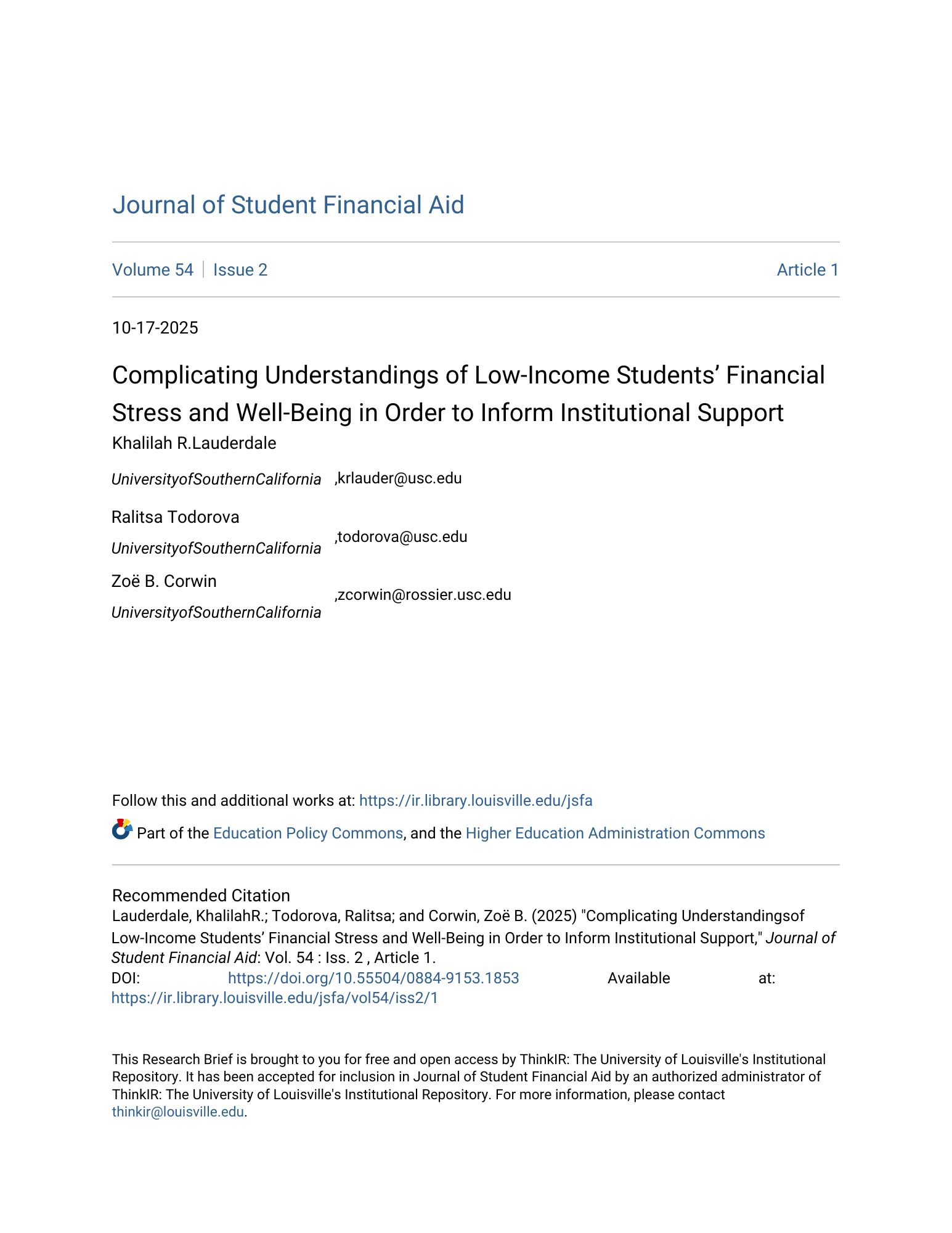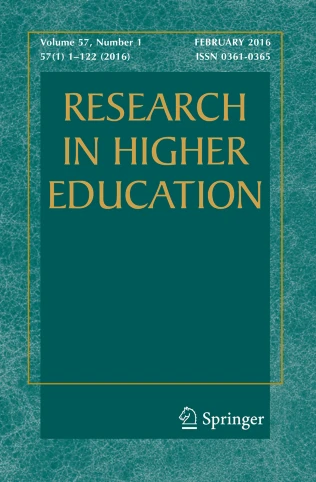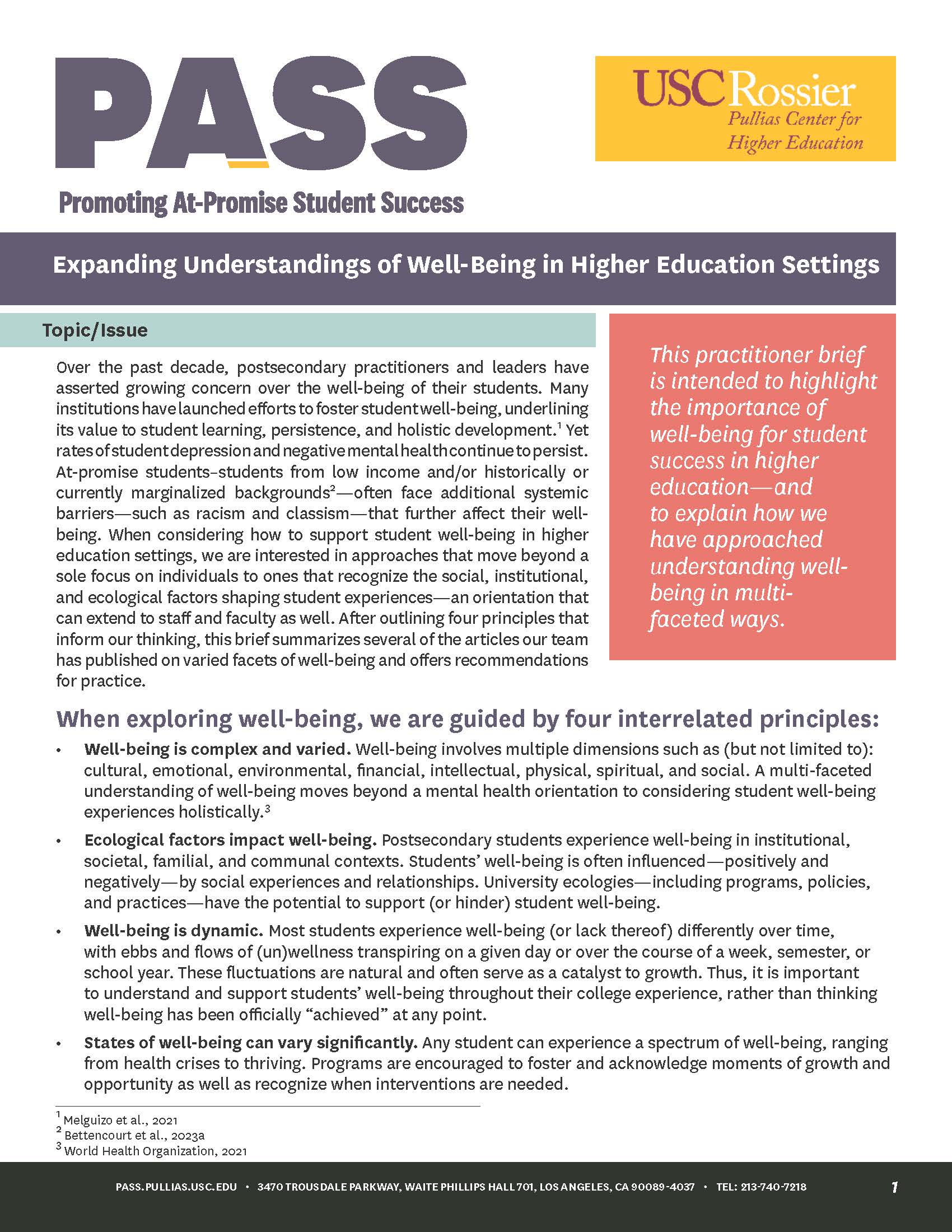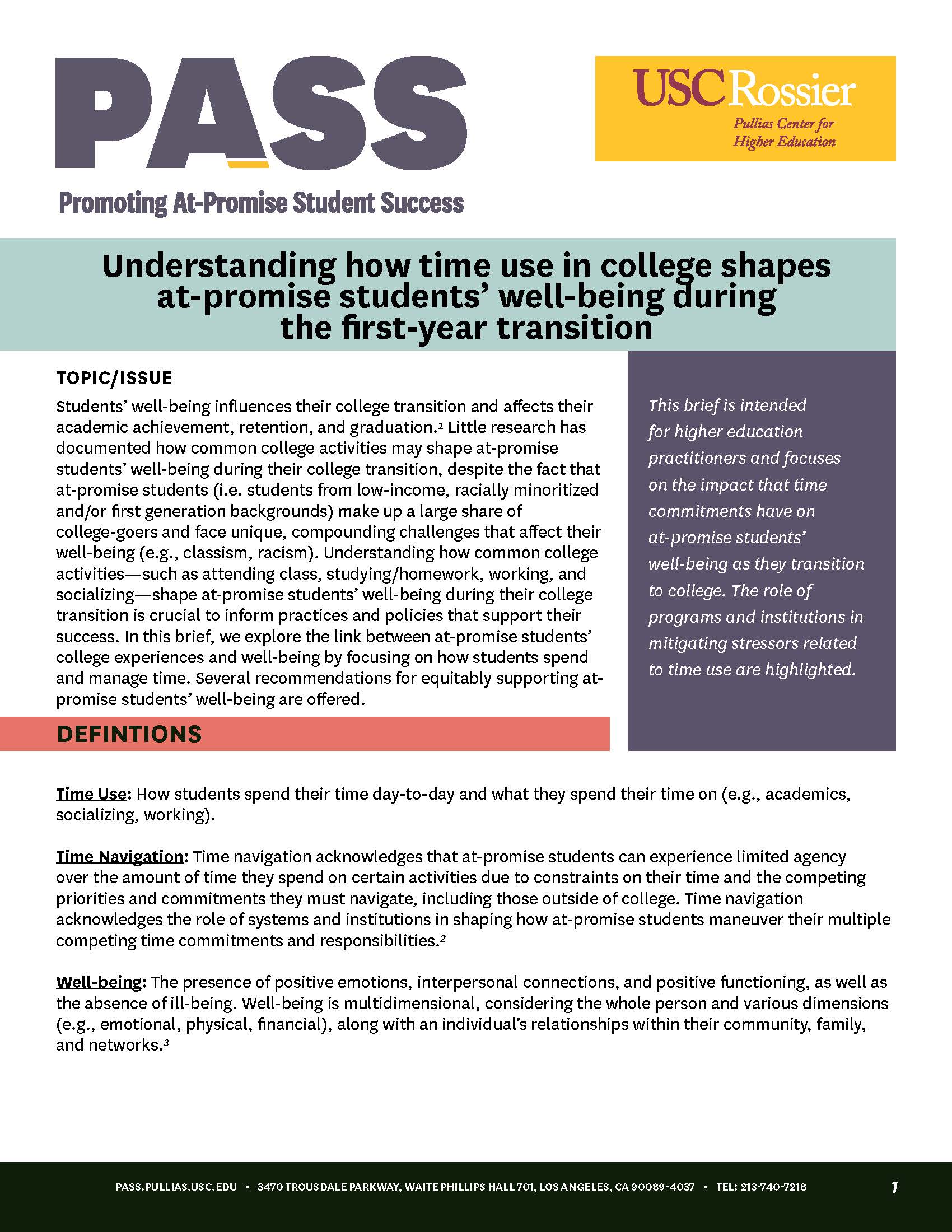Well-Being
Well-being is integral to a student’s academic performance along with their overall success in postsecondary spaces. Many institutions have launched efforts to support well-being, underlining its value to student learning, persistence, and holistic development. However, challenges with well-being and mental health persist. This is particularly the case for at-promise students (students from low-income and/or historically or currently marginalized backgrounds) who often face additional systemic barriers—such as racism, classism—that further affect their well-being. The PASS research has been exploring student well-being, guided by four principles including: well-being as holistic, ecological, part of a spectrum, and changing over time.
Here, you’ll find resources for practitioners, campus leaders, and researchers looking to support at-promise student well-being in higher education settings.
Articles

Complicating understandings of low-income students’ financial stress and well-being in order to inform institutional support.
Lauderdale, K., Todorova, R., & Corwin, Z. (2025).

It was a good day? Time use and subjective well-being among lower-income college students.
Bowman, N. A., Irwin, L. N., & Katsumoto, S. (in press).

A matter of time (use): Conceptualizing time navigation and time equity as directions for equitable research.
Bettencourt, G. M., Kezar, A., Hypolite, L. I., & Hallett, R. E. (2025)

The relationship between low-income college students’ time use and well-being: A mixed methods exploration.
Kitchen, J. A., Bowman, N., Todorova, R., Irwin, L. & Corwin, Z. B. (2024).

Exploring compassion fatigue and community care in student affairs.
Perez, R. J., Bettencourt, G. M. (2023).
Briefs

Creating a context for at-promise students to thrive: Relating psychosocial and academic outcomes.

Expanding understandings of well-being in higher education settings


